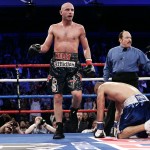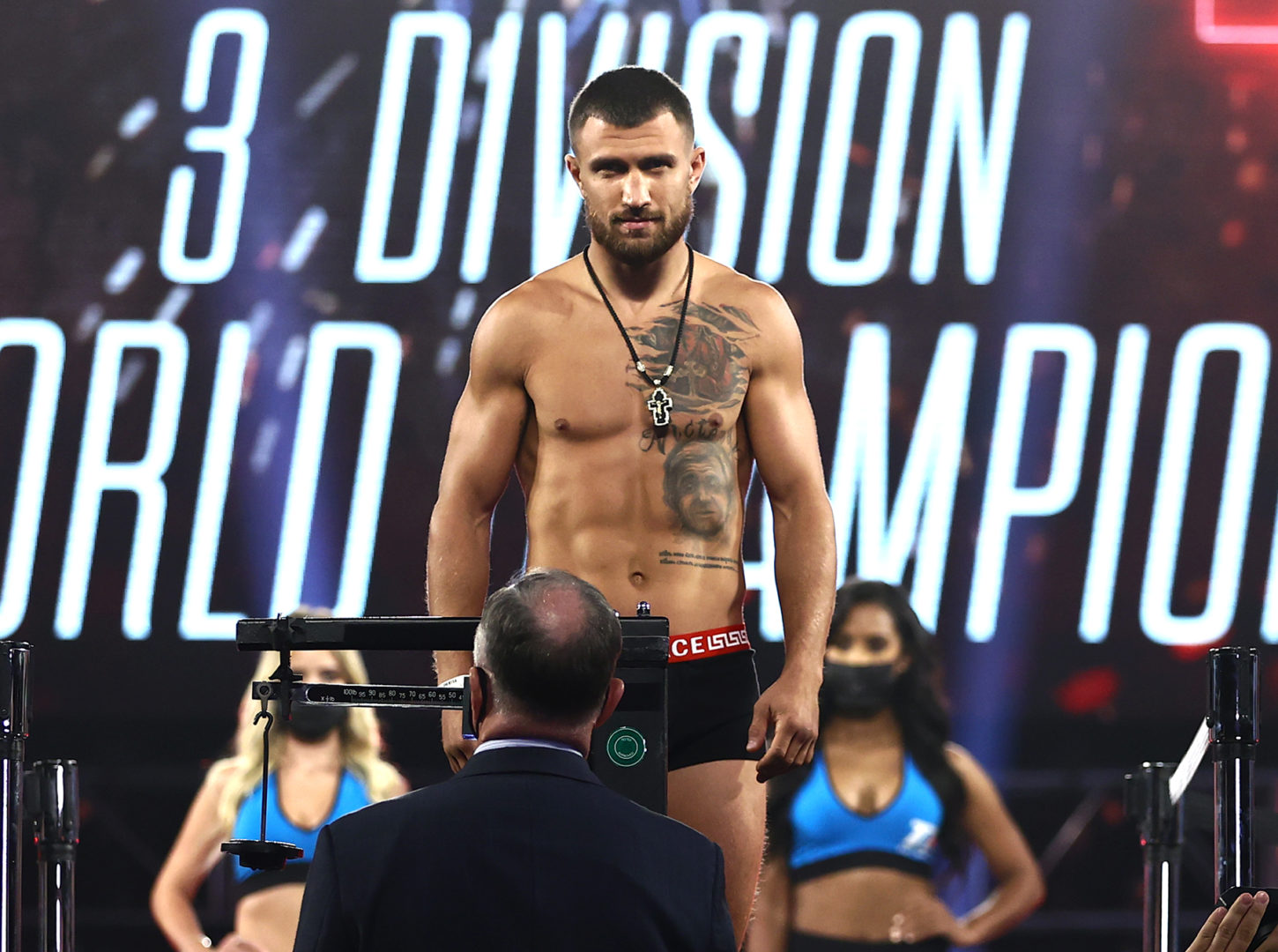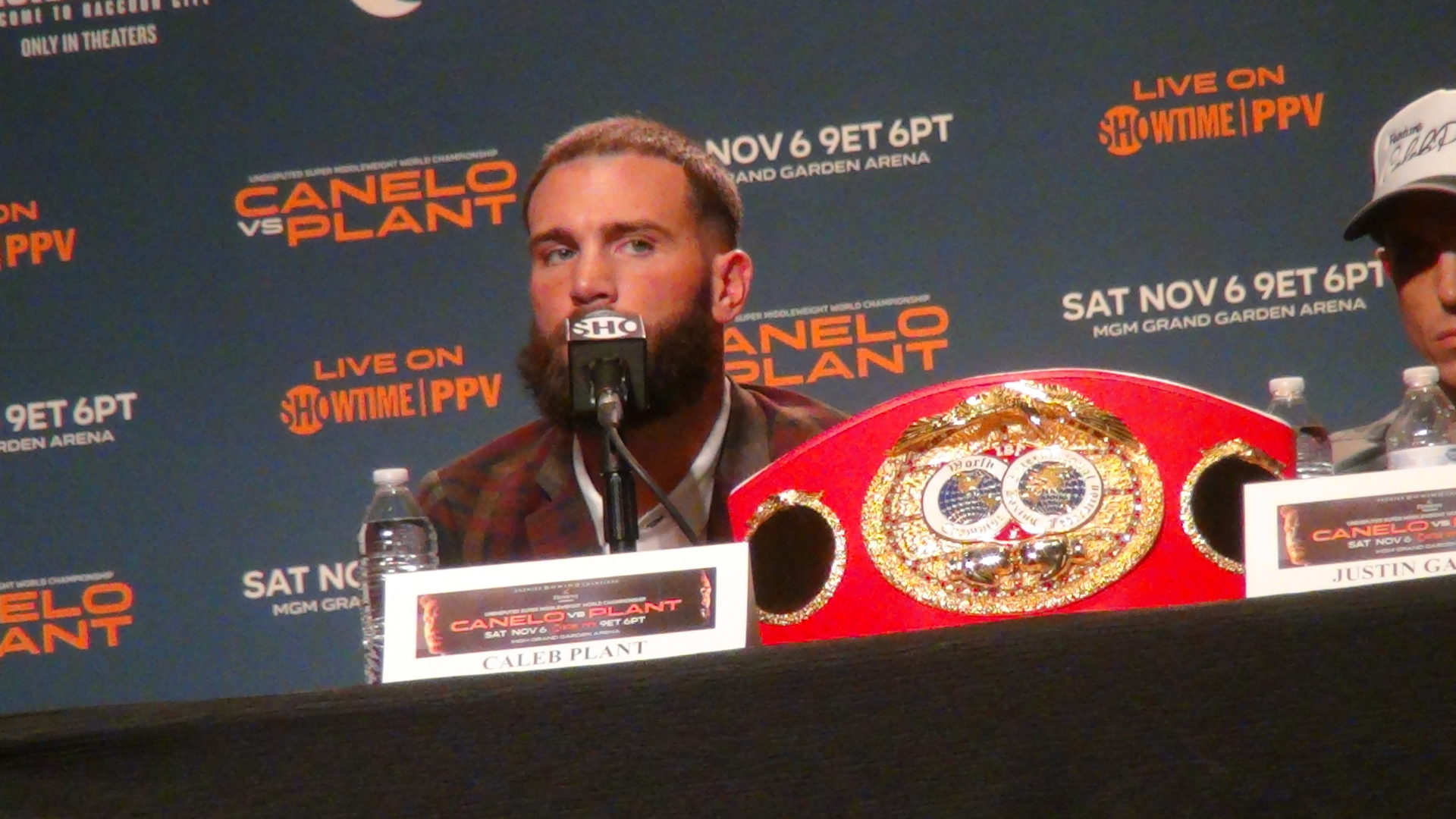
Wednesday brought some good news about Kelly Pavlik. All is ready but the contracts for Pavlik to defend his middleweight championship in April against Sergio Martinez. It isn’t the rematch we wanted for Martinez after his fantastic fight with Paul Williams two months ago, but it’s better than any match we’ve seen Pavlik make since Bernard Hopkins in 2008.
It’s also an occasion for examining personal bias, something I’ve wanted to do for a while. The last three years in the boxing gym – privy to arguments between numerous ethnicities and nationalities – have seen me play a role like neutral solon. When a Filipino and a Mexican argue about who won Pacquiao-Marquez II, I’m the tiebreaker, in other words, chastening both for ethnic bias.
But observing’s not as much fun as participating. That’s why I promised the next time a prizefighter who looked like me and came from my country was in a major fight, I’d do an examination of conscience – as the Xaverian brothers at St. John’s High School used to put it.
Kelly Pavlik meets those criteria. What follows, then, is a good-faith effort to better understand why we cheer the fighters we cheer, and where to draw a sensible line for cheering against others.
Folks who put on gloves and headgear tend to cheer fighters according to this hierarchy: 1. Race, 2. Fighting style, 3. Nationality, 4. Personality. This is supposed to be the post-racial world of 2010, I know, so if it makes things more palatable, go ahead and attribute our fixation on race to the forum in which it appears: We routinely get punched in the head.
As a white man in a country led by a black man, I’m now able to enjoy some newfound liberty. I think cheering for someone because he shares your race does not make you a racist. Cheering against someone because he does not share your race, though, may be something you shouldn’t do.
In an important essay about the need for affirmative action, written 23 years ago and subtitled “Reckoning with Unconscious Racism,” Professor Charles Lawrence made a thought-provoking case that anticipated a day when all racism was unconscious. Those of you who’ve suffered through some form of corporate diversity training are surely rolling your eyes right now, saying, “‘Unconscious racism’! Where does it end?”
Point taken. But consider: When the CEO of a Fortune 500 company acts ethically in the task of choosing his replacement, what qualities does he look for? After all, he’s done a fine job for the shareholders, and it’s his professional obligation to find someone who’ll do the same.
Acting in the best interests of his employer, then, he’ll select someone who reminds him of himself. That’s why there aren’t many latina women leading Fortune 500 companies. They’re not all less-qualified. Their predecessors aren’t racists. And yet the boardroom remains monochrome.
Two points, there, pertaining to prizefighting. First, we don’t need to be racists to cheer guys who remind us of ourselves. Second, we do need to be conscious of this predisposition before having our shoulders measured for that cloak of objectivity. That’s true for all sports fans, of course, but boxing, for all the criticism we accept, has always treated ethnic bias more openly than our peers; we expect more honesty from ourselves as fans.
Kelly Pavlik is white like me. He fights in the simple way – jab, hook, cross – that appeals to someone with my slower reflexes. He’s an American. He never belittles an opponent.
That role of the neutral solon I play in the gym? It partially reduces to my people not having a very impressive run in boxing these last 25 years.
That’s also the reason I feel an initial spark of interest about Pavlik that I don’t feel when I hear about Sergio Martinez or Paul Williams. After I think about Martinez or Williams matching up against Pavlik, I might well favor them or even cheer them against Pavlik. But that happens afterwards, and consciously.
What fearlessness I have in wandering about this minefield of bad faith and ruined reputation comes courtesy of Shannon Briggs. Before his 2006 fight with Sergei Liakhovich in Phoenix, Briggs called himself the “Great Black Hope” – in contrast to all the Eurasian heavyweight champions at the time. Intoxicated by a chance to represent his people, Briggs also made allegations of racism at the Liakhovich camp.
How much did this bother a Belarusian making a first title defense in his adopted hometown? In the post-fight press conference, after he’d lost his WBO belt in the fight’s final second, Liakhovich brought it up almost immediately. He turned to Briggs and said, in broken English, he wanted everyone to know he’d never said anything derogatory about black Americans.
Briggs said, “I know.” Then he explained it was just a ruse to sell the fight and get in Liakhovich’s head. Don King cackled away. Liakhovich looked more relieved than offended. And I promised myself I’d never be called a racist and take it seriously again.
Still, voluntary examinations of conscience can’t hurt, especially when I cheer against people.
I cheered against Fernando Vargas when he fought Oscar De La Hoya, but obviously not because he was latino. I’ll cheer against Floyd Mayweather when he fights Shane Mosley, but obviously not because he’s black. I’ll cheer against Wladimir Klitschko when he fights Eddie Chambers, though I can’t imagine it’s because he’s white.
I don’t like the personalities of Vargas or Mayweather, or the fighting style of Klitschko.
I’ll cheer for whomever I wish, then, for whatever reason – and that will probably mean Kelly Pavlik. But when I cheer against someone, I’ll do my best to ensure it’s not for ethnic reasons. I think that’s about as much as we can ask of ourselves.
Bart Barry can be reached via Twitter.com/bartbarry
Photo by Chris Farina/Top Rank


















